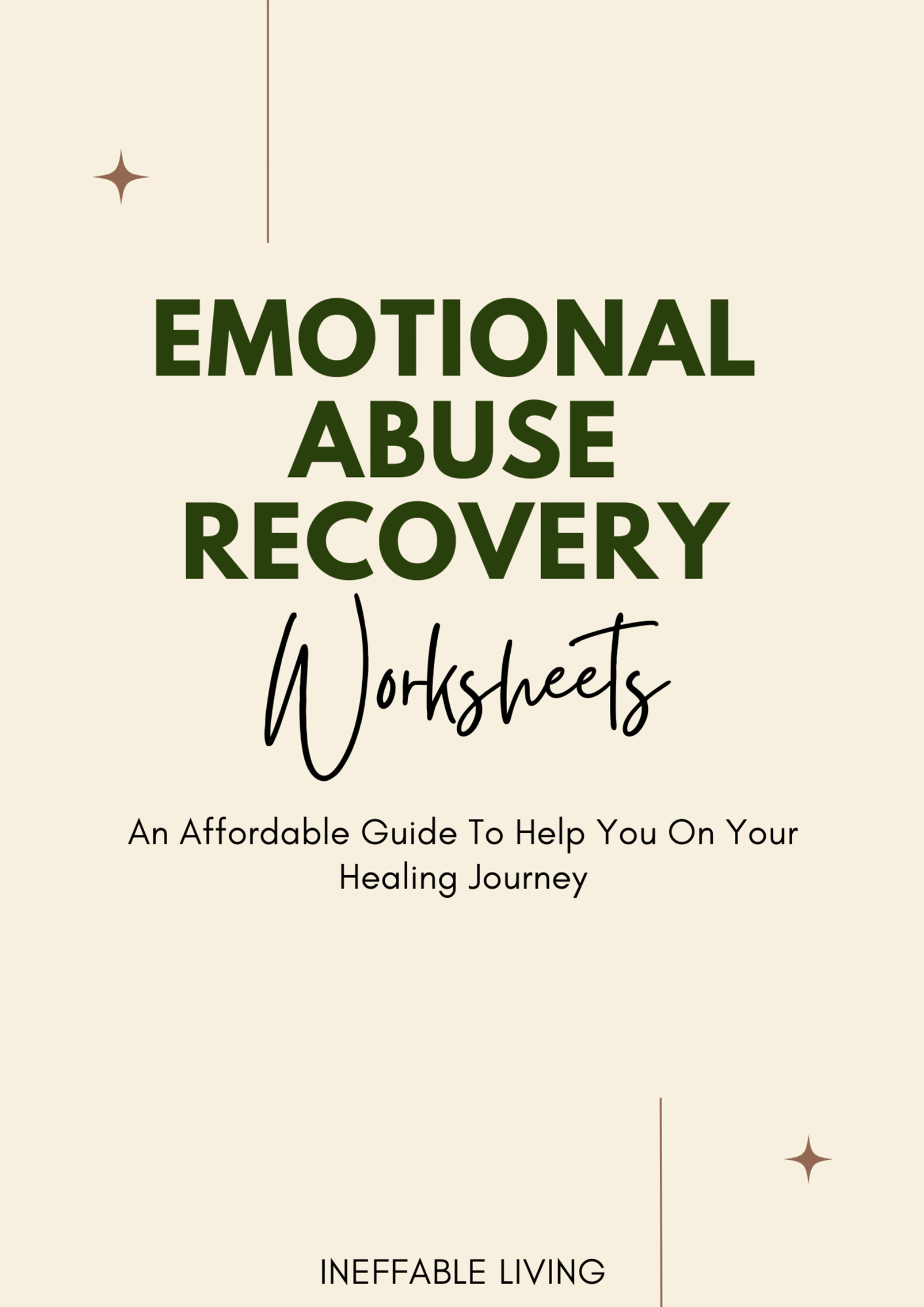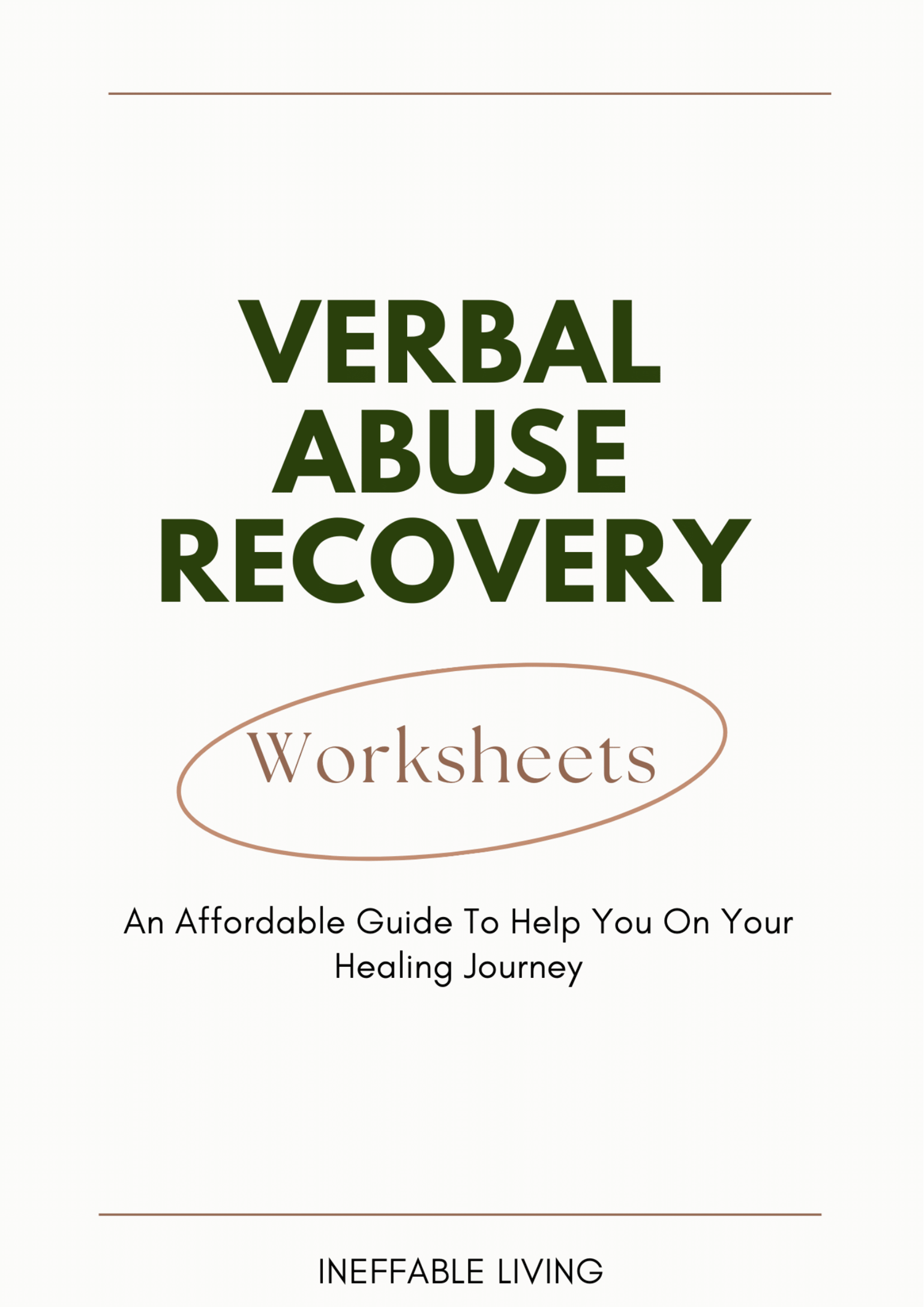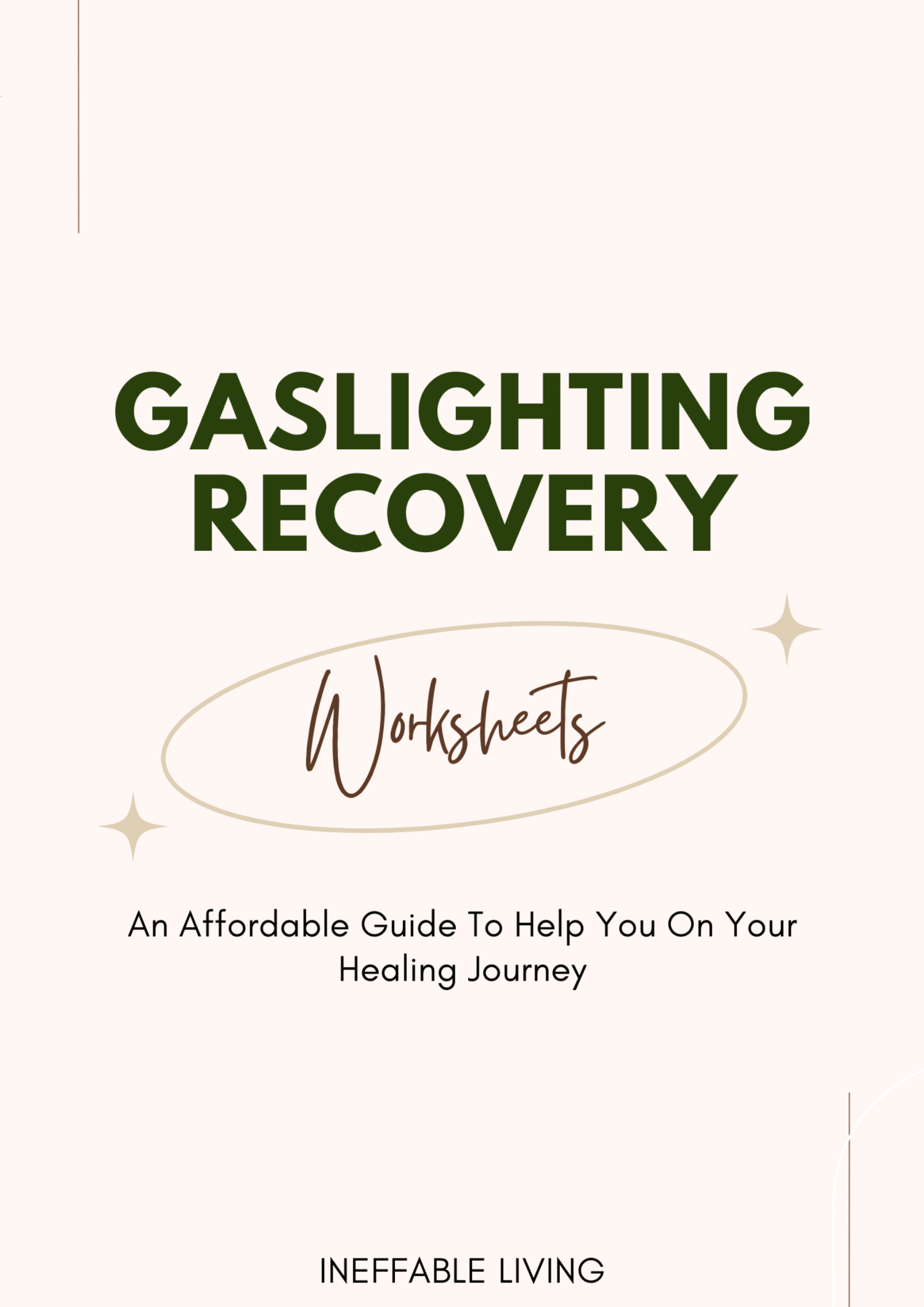Recovering from abuse is not just about surviving — it’s about slowly, steadily reclaiming your voice, your choices, and your sense of self.
The journey is rarely linear, and emotional healing often takes longer than physical wounds.
That’s where mental health worksheets can become a powerful companion in your recovery process.
1. Emotional Abuse Recovery Worksheets
(+20 Pages of activities and prompts)
Break free from the invisible wounds of emotional abuse with powerful prompts that help you rebuild self-worth, set boundaries, and trust your voice again.
2. Verbal Abuse Recovery Worksheets
(+20 Pages of activities and prompts)
Heal the damage caused by cruel words and constant criticism — these worksheets guide you in rewriting your inner dialogue and reclaiming your confidence.
3. Gaslighting Recovery Worksheets
(+10 Pages of activities and prompts)
Stop second-guessing yourself. These focused exercises help you reconnect with your reality, strengthen your intuition, and release self-doubt.
4. Domestic Violence Trauma Worksheets
(+50 pages of evidence based exercises and techniques)
For survivors of physical and emotional violence — gently work through trauma responses, build a sense of safety, and begin rebuilding your life on your terms.
Understanding the Impact of Abuse
Abuse — whether emotional, physical, sexual, or psychological — can leave behind invisible scars. Survivors may carry deep-rooted beliefs like “I’m not enough,” “Everything is my fault,” or “I can’t trust anyone.”
Healing begins with unlearning these beliefs and replacing them with truth, compassion, and clarity. Worksheets provide a space to unpack these internalized messages safely and systematically.
Why Worksheets Work in Abuse Recovery
Mental health worksheets give survivors a way to:
- Externalize painful thoughts instead of keeping them trapped inside
- Develop self-awareness by identifying patterns of fear, guilt, or self-blame
- Practice coping strategies like boundary-setting, grounding, and self-validation
- Reconnect with their identity beyond the abuse
- Track healing progress through reflection and journaling exercises
They’re flexible and private — perfect for those who aren’t ready or able to talk openly yet.
How to Use Worksheets for Healing
You don’t have to finish a worksheet in one sitting. Some prompts may bring up intense emotions — that’s a sign that something meaningful is being touched.
Tips for using them:
- Go at your own pace.
- Take breaks when needed.
- Use grounding tools if overwhelmed.
- Revisit the same worksheet later — healing is layered.
- Work with a therapist if you feel unsafe or stuck.
Some survivors also find it helpful to create a healing binder or journal — a private space to store completed worksheets and track growth over time.
You Deserve to Heal
It’s not your fault. You are not broken. You are not alone. Whether you’re just starting your recovery or further along your healing path, know this: you have the right to feel safe, to feel whole, and to reclaim your life.
Worksheets won’t do the healing for you, but they’ll walk beside you, guiding you through reflection, release, and rediscovery.

Read Testimonials –> HERE
FAQs
Can I use the worksheets with my therapy clients?
Absolutely! The worksheets are meant for both, personal and professional use.
The worksheets are copyrighted so you can’t resell them or upload them publicly online. But you can share them with your clients.
Can I make changes to the files before handing them down to my clients?
Absolutely! You can convert your PDF files to word documents and make changes using free tools like pdf2doc.com.
How do I know if these worksheets are right for me?
These worksheets are perfect for anyone who needs an affordable, yet effective strategies to help them increase their self-awareness and work on their own issues – alone or with their therapist.
These worksheets are not a one-size-fits-all approach and are in no way meant to imply that change is as one-dimensional as a worksheet.
So choose the techniques and suggestions that apply to you and tailor the exercises in ways that will be helpful to you.
Can I use these worksheets on my own or should I seek professional guidance?
These worksheets are designed to be helpful on their own. However, seeking professional guidance from a mental health professional can increase their effectiveness.
How do I use mental health worksheets effectively?
1. Set aside dedicated time: Find a quiet and comfortable space where you can focus on yourself without distractions. Treat this as valuable self-care time, just like you would for any other important appointment.
2. Choose the right worksheet: There are numerous worksheets available, each offering unique exercises and prompts. Consider your specific needs and goals. Are you looking to enhance self-awareness, manage stress, or improve your relationships? Select a worksheet that aligns with your current focus.
3. Read instructions carefully: Take a moment to fully understand the purpose and instructions of the worksheet. Clarify any questions you may have before proceeding.
4. Engage in self-reflection: Set pen to paper and let your thoughts flow. Don’t worry about perfection or judgment – this is your private space to express yourself authentically. Be honest with yourself and explore your emotions, thoughts, and experiences without restraint.
5. Reflect on your insights: After completing the worksheet, take some time to reflect on what you have learned about yourself. Consider any patterns or triggers that impact your mental well-being. Identify areas where you can implement positive changes or coping strategies.
6. Incorporate your insights into daily life: The true value of mental health worksheets lies in applying your newfound awareness and insights to your everyday life. Consider how you can integrate these insights into your relationships, self-care routines, and overall well-being.
When should I see a therapist?
These worksheets are designed to help you better understand yourself, your distress, and your difficulties.
You can use it in conjunction with therapy or as a stand-alone guide to manage your distress.
These worksheets can be considered a low-intensity intervention. They’re perfect for those who are struggling with mild to moderate issues.
In mental health, mild to moderate symptoms are those that are severe enough to be distressing to you, but moderate enough that you can still manage most of your daily activities.
If you feel very overwhelmed by any of the exercises in these worksheets, this might be a sign that your symptoms are too severe for you to do the work by yourself.
A therapist will help you at your own pace and provide support and encouragement throughout the process.
Do you have more questions? Check this page –> FAQs



